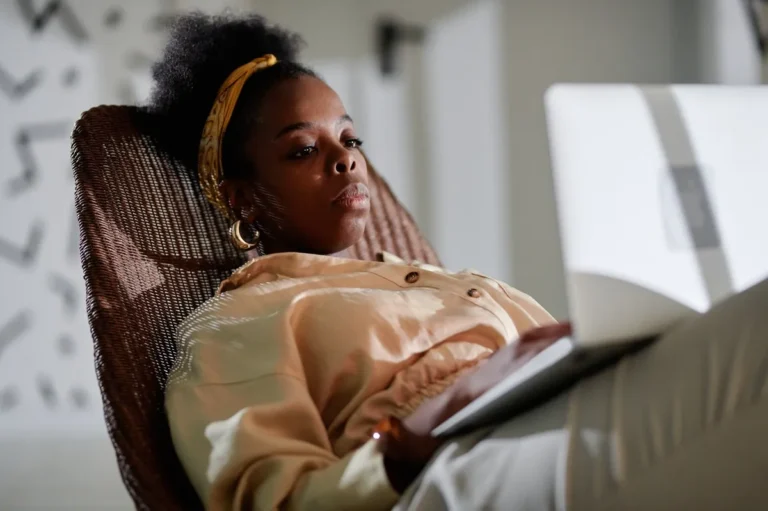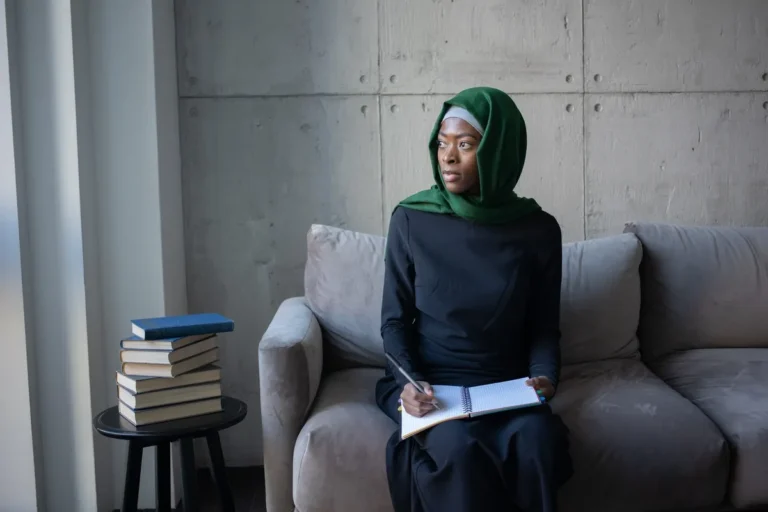ADHD Stories: My Journey & Top 3 Essential Tips to Diagnosis
I’m ready to share a deeply personal story that has been overdue — my ADHD story of being diagnosed.
It’s a journey that has shaped me into the person I am today, and I hope that it might help someone else grappling with similar challenges.
The value of sharing ADHD stories is immense; they help us understand each other better and reduce the stigma attached to the disorder.
So, grab your favorite hot beverage, and let’s get started.
What is ADHD?
Before we dive into my story, let’s clear the air on what ADHD is. It stands for Attention Deficit Hyperactivity Disorder. It’s a neurodevelopmental disorder that affects both children and adults.
There are three types of ADHD: Inattentive, Hyperactive, and Combination. They each have their unique set of symptoms, but they all share some common traits.
In my case, I have ADHD-PI or am primarily inattentive.
The Early Days
The journey toward diagnosis started with my struggle to keep up with daily routines, tasks, and responsibilities.
As a kid, my backpack was always a mess, assignments would be forgotten or lost, and I always missed a piece of the dress code at school, like a belt or ID.

Every day was a constant struggle of hiding what I couldn’t keep up with, and it wasn’t an occasional occurrence but a constant issue each day.
Growing up in a Black Caribbean household, I faced high expectations and little room for error due to cultural and societal pressures. I had to work even harder and develop coping mechanisms to succeed.
In my family, there was a negative stigma around ADHD which led to many signs being ignored.
Despite my efforts to cope, there was a pervasive belief that I wasn’t putting in enough effort or I didn’t care.
Rather than understanding, a ‘good whooping’ was seen as the cure for ADHD. As a result, some of my symptoms were disciplined in this punitive manner, which, naturally, offered no real help.
The Signs
In an attempt to keep up, I implemented countless systems and rules, but anxiety was the only thing that worked.

While I didn’t exhibit hyperactivity in a physical sense, when it came to excessive talking, interrupting, and difficulty concentrating, the symptoms were present.
My mind was always racing. I had difficulty concentrating on even a conversation sometimes and have to ask for it to be repeated, I interrupt people (of course not intentionally), and when something excites me, I get so carried away that I struggle to hold myself back, I even get teary-eyed.
My mind was a scrambled egg most of the time, my experience with ADHD was jumping from one topic to the next. Despite this, throughout my time in school, I was labeled as “gifted”.
I felt a sense of pride and imposter syndrome in carrying that title; the label also came with its challenges.
My internal struggles were always hidden behind the mask of the ‘gifted’ child. The first time I received a B on my report card, I remember how devastated I was. The fear of disappointment was so overwhelming that I rushed home to dispose of the evidence.
When I first stumbled upon the term ‘twice exceptional‘, it was a revelation. There was a term that described me.
It perfectly captured my experience as someone that possessed gifted abilities but also grappled with a disorder like ADHD, which affected my cognitive functioning rather than my intellectual capabilities.

I was beginning to understand that it wasn’t about discipline or the lack of it; it was something far more complex. The realization was empowering, and it motivated me to seek the help I needed.
This disorder also affected my relationships. In middle school, one of my best friends told me that I wasn’t a good friend. It was a gut punch.
I truly believed I was a good friend, but I realized that my ADHD symptoms made me seem disinterested and bossy.
Maintaining relationships has always been a challenge for me. My ADHD made it difficult for me to function in the way that others expected. This is something I’ve always battled with, and I still do.
In hindsight, I understand how I could come off as disinterested and bossy. I had to operate in a certain way to function, and that didn’t always translate well to others.
Even as an adult, I’ve had to step back from friendships to better manage my symptoms. I can go weeks or months before replying to texts and often forget to reach out.
I decided that I needed to get my inattention and executive dysfunction in check, not only for those that I love in my life but for my well-being.

Honestly, that’s been one of the hardest parts, people around me didn’t understand and I didn’t have the capacity or understanding to explain.
I was carrying this heavy load of internalized ableism. It’s something I really dug into in another post I wrote, ‘Overcome Internalized Ableism: My Story and 3 Tips to Heal.’
If any of this is striking a chord with you, that post might just offer you some useful tips. Check it out, it could be a game-changer!
The Turning Point
At 17, I had to become independent due to a traumatic situation. My life was in constant chaos and survival mode. Although this chaos was overwhelming, it ironically helped me stay alert and focused on getting through each day.
While, paradoxically, anxiety was serving as a survival mechanism, it ultimately left me as a bundle of frayed nerves.
When the external situation stabilized and I finally found some sense of security, I continued to feel overwhelmed, anxious, and severely depressed. It was during this period that I stumbled upon a post about ADHD.
It shook me to the core and I began seeing my struggles in a new light.
Seeking Help
Getting help was far from straightforward. After a two-month-long search, I found a clinic run by and targeted to black women.

The first therapist I was matched with wasn’t a good fit. Her unprofessionalism and lack of empathy left me disheartened.
I didn’t let this deter me. I reached out again and found a therapist who better understood me. In our first appointment, she shared that it sounded like I was struggling with adult ADHD and sent some paperwork on it.
The Diagnosis
About 5 months in, my therapist suggested I see a psychiatrist who could officially diagnose me since my symptoms were not improving. My heart pounded as I went to my first appointment, but it was a vital step.
After several sessions, the psychiatrist advised that they believed I had ADHD, but needed an in-person evaluation with a psychologist.
I attended an appointment of a few hours where I explained everything and then took a written diagnostic test where it was confirmed — I have ADHD-PI.
There was a rush of emotions. It was a relief to finally have an explanation for my struggles, but there was also fear. Fear of what this meant, of the stigma attached to ADHD, and fear of the unknown.
Above all, it was an affirmation that I was not alone and that there were resources available to help me navigate my life.

I have to also shout out to the ADHD community on Reddit, as I gained a lot of support and understanding during this time from neurodiverse subreddits. One of the things I’ve found most helpful in my journey has been reading and hearing other ADHD stories.
Post-Diagnosis Life
Post-diagnosis, I started a combination of therapy and medication. I am prescribed Strattera, which hasn’t drastically altered my struggles with inattention or executive dysfunction. However, even the slight improvements I’ve noticed in my functioning affirm that it’s a step up from no treatment at all.
There are other options for stimulants like Adderall or Vyanese which work better for ADHD, but since I smoke marijuana, my psychiatrist suggested starting with a low dose of Strattera.
We’ll work to increase the dose as time continues.
Therapy has also been instrumental in processing and understanding my diagnosis concerning anxiety, as I was also diagnosed with GAD or Generalized Anxiety Disorder.
One of the most vital parts of my journey post-diagnosis has been learning self-acceptance and self-love.
I had to challenge and unlearn many of the negative perceptions I had about myself, which stemmed from years of misunderstanding my symptoms.

I had to embrace that my brain functions differently, and that’s okay. It’s not a flaw; it’s a part of me.
3 Tips for Navigating the Path to Diagnosis
Let’s be real: the path to diagnosis is not easy. It’s not as simple as reading symptoms on the internet and self-diagnosing.
That can be a dangerous game because while you may resonate with the symptoms and even be 99% sure, there’s always that 1% chance of something else underlying your symptoms.
What could be mistaken for ADHD?
- Anxiety Disorders: Anxiety can lead to issues with focus, attention, and restlessness, mimicking the symptoms of ADHD.
- Bipolar Disorder: Particularly in children and adolescents, symptoms may include impulsive behavior and rapid mood changes, which can be confused with ADHD.
- Thyroid problems: Both hyperthyroidism and hypothyroidism can lead to problems with concentration and energy levels, potentially mimicking symptoms of ADHD.
- Sensory Processing Disorder: This condition involves the brain having trouble receiving and responding to information that comes in through the senses, which can lead to difficulty in focusing.
- Post-Traumatic Stress Disorder (PTSD): Symptoms such as difficulty concentrating can be mistaken for ADHD.

The stigma doesn’t make it any easier either, which is why I made it a point not to claim the disorder until I was officially diagnosed. That’s not to say I didn’t discuss my suspicions with my close circle, because I did.
I also searched for personal stories from those who have been in the same position. There’s power in ADHD stories, as they reveal the lived realities behind the diagnostic label.
I spent countless hours researching and educating myself. But at the end of the day, I knew that getting an official diagnosis was paramount to starting an appropriate treatment plan.
If you suspect you might have ADHD, I’d like to share some tips that helped me navigate the diagnosis process.
Commit to your Healing Journey
First and foremost, be prepared to give it your all. Commit to yourself and start small.
There were many other appointments that I missed in the beginning, but I made sure to show up every week for therapy during the first year.
Even if I was a bit late, I stuck to the virtual appointments – thanks, Covid – because there were fewer barriers to showing up.

Healing isn’t a walk in the park. It can be grueling, it can test your patience, and feel draining at times, but remember: it’s absolutely within your reach.
In six months, you could be looking at a completely different version of yourself, a version that’s closer to who you want to be.
Secure Your Financial Resources
This is a tough one to swallow, but it’s the harsh reality, especially in the US. Diagnosis isn’t cheap, especially without insurance.
If you don’t have the means, it’s crucial to understand how insurance works and find ways to get insured.
If you have employer-provided insurance, make an effort to understand what mental health support they offer. Trust me, it can make a world of difference.
In my case, when enrollment time came around, I was well-versed in my insurance policies. I knew my deductibles, signed up for an FSA card to cover appointments and meds tax-free, and planned everything so strategically that my appointments went down to $5.
A single appointment with a psychiatrist can cost over $250, and therapy sessions over $125, so a good understanding of your insurance can save you heaps in the long run.
Find the Right Therapist

A therapist that meets your specific needs can be a game-changer.
It may take time and patience to find the right one, but once you do, the strides you can make are unimaginable.
And there you have it! My top 3 tips for navigating the path to an ADHD diagnosis.
I hope they’re as helpful to you as they were to me. Remember, the journey may be challenging, but it’s 100% worth it in the end.
Conclusion
I hope that by sharing, I can add to the growing collection of ADHD stories that illuminate the complexity of this condition.
ADHD is not a character flaw; it’s a neurodevelopmental disorder. It’s a part of who I am, and it doesn’t define me. I still struggle sometimes, but I’m no longer fighting myself. I am no longer riddled with constant shame and guilt for my inability to perform at the standard others have set.
It has been far from easy, but it’s been worth it. I’m sharing my story because I know there are others out there who might be feeling lost and confused like I once was.

Take the time to understand yourself, your struggles, and don’t be afraid to seek help. It’s the first step towards finding clarity amid chaos.
Don’t let stigma or fear stop you. You’re not flawed; you’re human, and it’s okay to ask for help when you need it.
Share this post with someone who may find it helpful!








